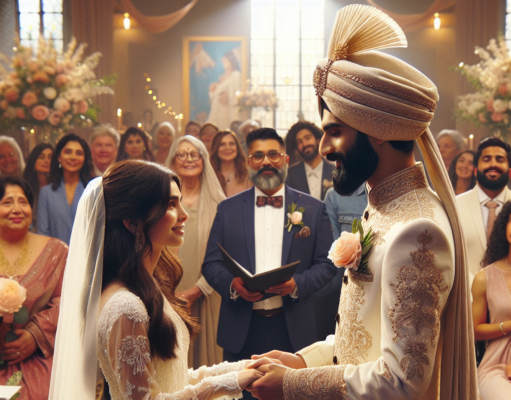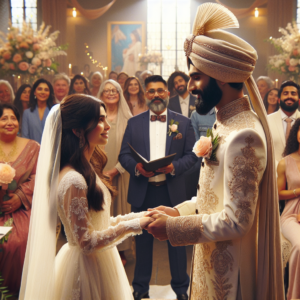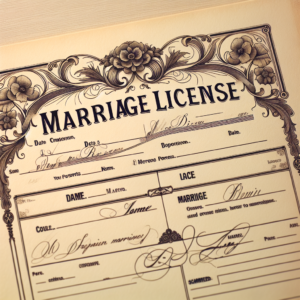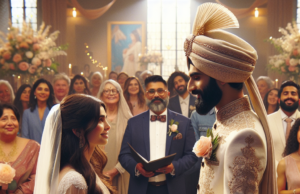Unraveling the Glamour: Shocking Celebrity Marriage Splits Exposed
In a world captivated by the glitz and glamour of celebrity culture, the dissolution of high-profile marriages often sends shockwaves through the public. From the red carpets to the tabloids, the lives of celebrities are scrutinized, and their relationships are no exception. This article delves into the rise and fall of celebrity marriages, exploring the factors that contribute to their breakdowns, notable case studies, the impact of public scrutiny, and how these stars navigate life after divorce. Ultimately, it seeks to extract valuable lessons from these high-profile splits that resonate with fans and followers alike.
The Rise and Fall of Celebrity Marriages: A Closer Look at High-Profile Divorces
Celebrity marriages often begin with a whirlwind of romance, lavish weddings, and public declarations of love, captivating fans and media alike. However, the same spotlight that elevates these unions can also contribute to their downfall. High-profile couples like Kim Kardashian and Kris Humphries, who famously split after just 72 days of marriage, exemplify how the pressures of fame can strain relationships. As the initial excitement fades, the realities of life under public scrutiny become apparent, leading many couples to face insurmountable challenges. The stark contrast between the glamorous beginnings and the often messy endings of these marriages highlights the fragility of love in the limelight.
Behind the Glamour: Factors Contributing to Celebrity Relationship Breakdowns
Several factors contribute to the fragility of celebrity marriages, often exacerbated by the unique pressures of fame. The demanding schedules of high-profile careers can lead to prolonged periods of separation, creating emotional distance between partners. Additionally, the constant media attention can breed insecurity and mistrust, as rumors and speculation circulate unchecked. Financial pressures, lifestyle differences, and the challenge of maintaining a private life in the public eye further complicate these relationships. As a result, many celebrity couples find themselves grappling with issues that can overwhelm their bond, leading to heartbreaking separations.
Case Studies: Notable Celebrity Couples Who Shocked Fans with Their Split
The entertainment industry has witnessed numerous shocking splits that left fans reeling. One such case is the divorce of Ben Affleck and Jennifer Garner, a couple admired for their apparent stability and family values. Their split in 2015 came as a surprise to many, revealing the complexities of their relationship that had long been hidden from the public eye. Another notable example is the breakup of Miley Cyrus and Liam Hemsworth, whose on-again, off-again romance culminated in a sudden divorce in 2019. These high-profile splits serve as reminders that even the most seemingly perfect relationships can unravel, often in ways that are unexpected and painful for those involved.
The Impact of Public Scrutiny on Celebrity Marriages and Their Longevity
Public scrutiny plays a significant role in the longevity of celebrity marriages. The constant gaze of fans and media can create an environment of pressure that is difficult to navigate. Couples often find themselves defending their relationship choices, facing invasive questions about their personal lives, and dealing with the fallout of public speculation. This relentless scrutiny can exacerbate existing issues, leading to misunderstandings and conflicts that might otherwise remain private. As a result, many celebrity marriages struggle to withstand the weight of public opinion, ultimately succumbing to the pressures of fame.
Rebuilding After Heartbreak: How Celebrities Navigate Life Post-Divorce
Life after divorce can be particularly challenging for celebrities, who must navigate their personal struggles in the public eye. Many stars take time to focus on self-care and personal growth, often sharing their journeys with fans to foster a sense of connection. For instance, after her split from actor Chris Pratt, Anna Faris openly discussed her experiences with heartbreak and the importance of resilience. Others, like Jennifer Aniston, have used their platforms to advocate for mental health awareness, emphasizing the need for support during difficult times. By embracing vulnerability and authenticity, these celebrities not only rebuild their lives but also inspire their fans to do the same.
Lessons Learned: What Fans Can Take Away from Celebrity Marriage Failures
The high-profile divorces of celebrities offer valuable lessons for fans regarding love, relationships, and the complexities of marriage. One key takeaway is the importance of communication and trust, as many splits stem from misunderstandings and lack of transparency. Additionally, the need for personal space and independence within a relationship is crucial, as the pressures of fame can lead to feelings of suffocation. Fans can also learn that even seemingly perfect couples face challenges, reminding us that no relationship is immune to difficulties. Ultimately, these lessons encourage individuals to approach their own relationships with empathy, understanding, and a willingness to grow together.
In conclusion, the unraveling of celebrity marriages serves as a poignant reminder of the complexities of love in the public eye. While the glamour and allure of celebrity relationships may captivate us, the reality is often fraught with challenges that can lead to heartbreaking splits. By examining the factors contributing to these breakdowns, notable case studies, and the impact of public scrutiny, we gain a deeper understanding of the intricacies of love and partnership. As celebrities navigate life post-divorce, they offer valuable insights and lessons that resonate with fans, ultimately encouraging us all to approach our relationships with care and compassion.



















